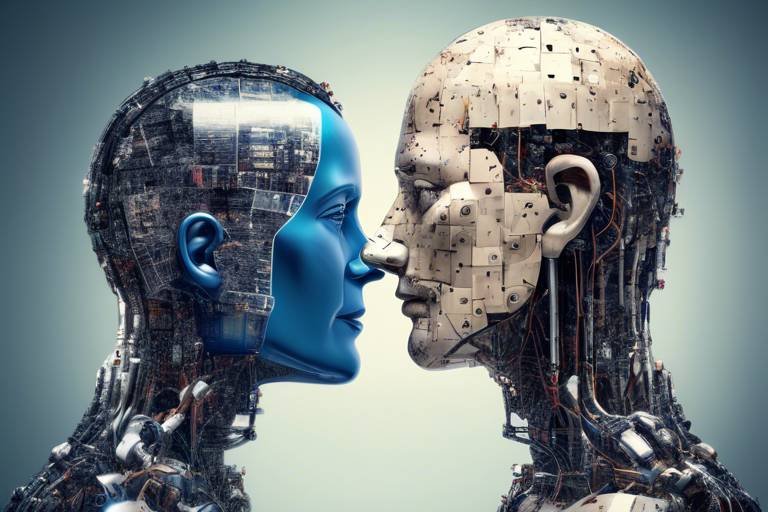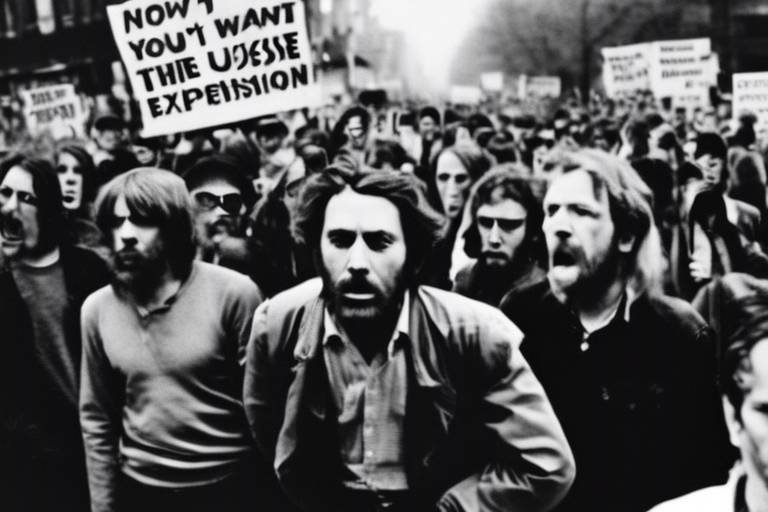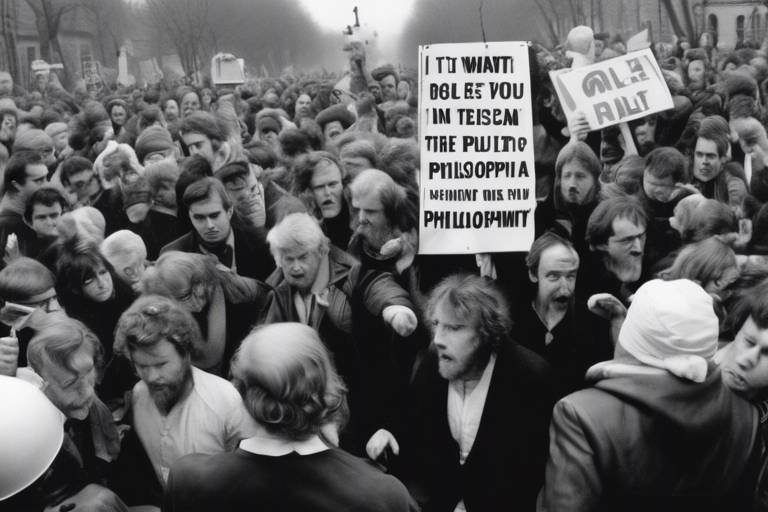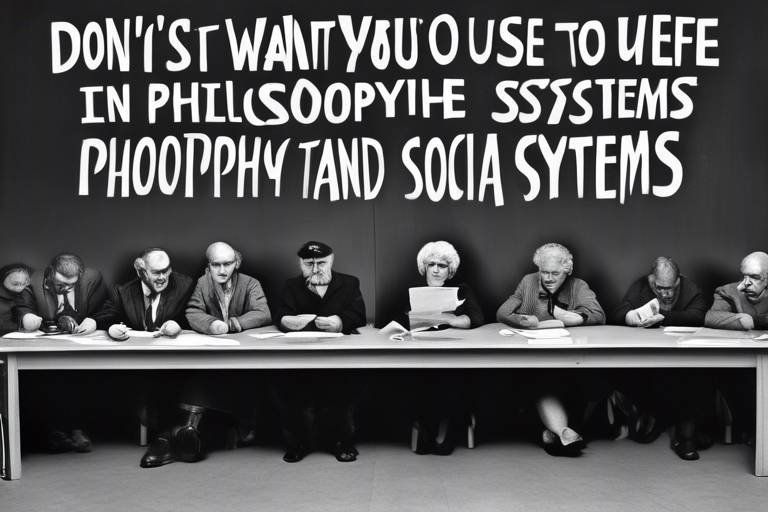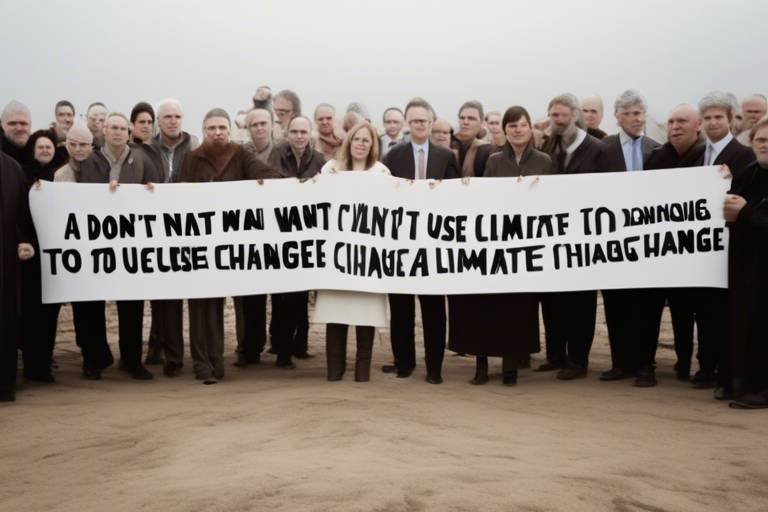Philosophy and Politics: An Analysis of Political Identity
In our ever-evolving world, the intertwining of philosophy and politics creates a rich tapestry that defines how we perceive ourselves and our place within society. The exploration of political identity is not just an academic exercise; it is a quest to understand the very essence of who we are as individuals and as members of various communities. Have you ever wondered why your political beliefs align with certain ideologies? Or how your background shapes your views on governance and justice? These questions delve into the heart of political identity, revealing the profound impact that philosophical frameworks have on our beliefs, values, and affiliations.
Political identity is the lens through which we view political landscapes, influencing our choices and actions. It consists of a complex blend of beliefs, values, and affiliations that define our political stance. Imagine it as a mosaic, where each piece represents a different aspect of who we are—our upbringing, education, culture, and personal experiences. Together, these pieces form a cohesive picture that guides our political engagements and interactions. In a world filled with diverse ideologies, understanding the roots of our political identity is essential for fostering a more inclusive and empathetic society.
At the core of this exploration lies the philosophical foundations that shape political thought. Various political ideologies, from liberalism to conservatism, are built upon distinct philosophical ideas that not only influence individual identities but also shape collective movements. For instance, liberalism, which champions individual rights and personal freedoms, is deeply rooted in the works of philosophers like John Locke. His ideas about the social contract and government by consent resonate with many who value autonomy and democratic principles. On the other hand, the critiques of capitalism by Karl Marx challenge traditional political identities, urging individuals to consider their place within a broader class structure and to advocate for social equity.
As we navigate the complexities of modern society, contemporary thinkers continue to expand upon these classical theories. The rise of globalization, technological advancements, and social movements has transformed how we perceive political identity. Today, we find ourselves in an interconnected world where local and global influences collide, leading to hybrid identities that reflect a blend of various cultural and ideological backgrounds. This evolution prompts us to reassess our political affiliations and to engage with diverse perspectives.
Moreover, cultural factors such as ethnicity, religion, and language significantly impact political identity. They shape how individuals relate to different political ideologies and how they engage in civic life. For example, identity politics has emerged as a powerful force, focusing on the interests of marginalized groups and raising critical questions about representation and power dynamics. While it can foster unity among specific communities, it also presents challenges, as it risks creating divisions that hinder constructive dialogue.
In conclusion, the relationship between philosophy and politics is a dynamic interplay that shapes our understanding of political identity. As we face challenges from evolving societal norms, technological advancements, and political polarization, it is crucial to remain open to reassessing our beliefs and affiliations. By doing so, we can navigate the complexities of our political landscape with greater awareness and empathy, ultimately leading to a more inclusive society.
- What is political identity? Political identity refers to the beliefs, values, and affiliations that define an individual's or group's political stance.
- How do philosophers influence political identity? Philosophers provide foundational ideas that shape various political ideologies, influencing how individuals perceive their roles within society.
- What role does culture play in political identity? Cultural factors such as ethnicity, religion, and language significantly influence how individuals relate to political ideologies and engage in civic life.
- How does globalization affect political identity? Globalization leads to hybrid identities that reflect a blend of local and global influences, reshaping political allegiances and community ties.

The Nature of Political Identity
Political identity is a multifaceted concept that encompasses the beliefs, values, and affiliations that define an individual's or group's stance within the political landscape. It's not just about where you stand on issues; it's about how you perceive yourself and your place in the world. Think of it as a tapestry woven from various threads—personal experiences, cultural background, and societal influences—all coming together to create a unique political fabric.
At its core, political identity shapes how we engage with the world around us. It influences our voting behaviors, our participation in civic activities, and even our daily conversations. For instance, when you identify as a liberal, conservative, or somewhere in between, that label carries with it a set of beliefs about the role of government, individual rights, and social justice. These beliefs are often reinforced by the communities we belong to, whether they are family, friends, or larger social groups.
Moreover, political identity is dynamic; it evolves over time as individuals encounter new experiences and ideas. As we grow and learn, our political beliefs can shift, sometimes dramatically. This fluidity can be a source of strength, allowing for adaptation to changing societal norms or emerging issues. However, it can also lead to confusion and conflict, especially when individuals find their beliefs challenged by new information or differing perspectives.
To further understand the nature of political identity, consider the following factors that contribute to its formation:
- Personal Experiences: Life events, such as education, employment, and family background, significantly shape our political views.
- Cultural Influences: Ethnicity, religion, and language play crucial roles in how individuals relate to political ideologies.
- Social Networks: The communities we engage with can reinforce or challenge our political beliefs, creating a feedback loop that influences our identity.
In summary, political identity is not merely a label; it's a complex interplay of various factors that define how we see ourselves in relation to the political world. Understanding this identity requires a deep dive into the philosophical ideas that underpin our beliefs, the cultural contexts we inhabit, and the social dynamics that shape our interactions. As we navigate the ever-changing political landscape, our identities will continue to evolve, reflecting the myriad influences that surround us.

Philosophical Foundations of Political Thought
Understanding political identity requires diving into the philosophical ideas that underpin various political ideologies. These ideologies, ranging from liberalism to conservatism, are not just abstract concepts; they are the bedrock upon which individuals and societies build their political beliefs and identities. The way we perceive our roles within society, the government, and our relationships with others is deeply influenced by these philosophical frameworks. They serve as lenses through which we interpret our experiences and navigate the complex political landscape.
At the core of political philosophy lies the exploration of fundamental questions: What is justice? What rights do individuals possess? How should power be distributed? These inquiries lead to the development of various political theories that attempt to address the complexities of human behavior and societal organization. For instance, liberalism emphasizes individual rights and freedoms, advocating for a government that is accountable to its citizens. On the other hand, conservatism often prioritizes tradition, social stability, and a cautious approach to change. Each ideology offers a unique perspective on power dynamics and governance, shaping political identities in distinct ways.
To illustrate this connection between philosophy and political identity, consider the following table that summarizes key political ideologies and their philosophical underpinnings:
| Political Ideology | Philosophical Foundation | Key Concepts |
|---|---|---|
| Liberalism | John Locke, John Stuart Mill | Individual rights, freedom, social contract |
| Conservatism | Edmund Burke | Tradition, social order, gradual change |
| Socialism | Karl Marx, Friedrich Engels | Class struggle, collective ownership, social equity |
| Libertarianism | Friedrich Hayek, Milton Friedman | Minimal government, personal freedom, free markets |
These ideologies are not merely theoretical; they resonate with people’s lived experiences, shaping their political identities. For example, someone who identifies as a liberal may prioritize issues like civil rights and environmental protection, while a conservative might focus on national security and economic stability. The philosophical foundations provide the vocabulary and reasoning that individuals use to articulate their beliefs and engage in political discourse.
Moreover, as society evolves, so too do these philosophical frameworks and the political identities they inform. Contemporary thinkers have expanded upon classical theories, introducing new concepts that reflect the complexities of modern life. Issues such as globalization, technological advancement, and social movements have prompted a re-examination of traditional ideologies, leading to a more dynamic understanding of political identity. For instance, the rise of social movements advocating for gender equality and racial justice has challenged established political norms and encouraged individuals to explore their identities in relation to these broader social issues.
In conclusion, the interplay between philosophy and political identity is profound and multifaceted. By examining the philosophical foundations of political thought, we gain insight into the beliefs and values that shape our political landscape. This understanding not only enriches our appreciation for different political ideologies but also enhances our ability to engage in meaningful political dialogue. As we navigate the complexities of our political identities, it is essential to remain open to the evolving nature of these philosophical frameworks and their implications for our collective future.

Key Philosophers and Their Contributions
When we delve into the realm of political identity, we cannot overlook the profound impact of key philosophers whose ideas have shaped our understanding of politics and society. These thinkers have not only influenced political ideologies but have also provided frameworks through which we can analyze our own identities. Let's explore some of these influential figures and their contributions.
John Locke, often hailed as the father of liberalism, introduced the concept of the social contract, which posits that governments derive their legitimacy from the consent of the governed. His emphasis on individual rights and personal liberty has become a cornerstone of modern democratic thought. Locke argued that individuals possess natural rights to life, liberty, and property, and that the primary role of government is to protect these rights. This philosophy has not only shaped political identity in liberal democracies but has also fostered a sense of individualism that resonates in contemporary society.
On the other hand, we have Karl Marx, whose critique of capitalism and class struggle provides a contrasting perspective. Marx argued that political identity is significantly influenced by economic structures, asserting that the ruling class's interests often overshadow those of the working class. His idea of class consciousness encourages individuals to identify with their social class rather than their individual aspirations, fostering a collective political identity rooted in the pursuit of social equity and justice. This perspective challenges the notion of individualism promoted by liberalism, emphasizing the importance of community and shared interests.
Another pivotal figure is Hannah Arendt, who explored the nature of power and authority in political life. Arendt's work on totalitarianism and the nature of evil highlights how political identity can be manipulated by regimes to suppress dissent and individuality. She emphasized the importance of active participation in political life, arguing that true political identity emerges through engagement and discourse. Arendt's insights remind us that our political identities are not just formed in isolation but are deeply intertwined with our social contexts and collective experiences.
To illustrate the diverse contributions of these philosophers, we can summarize their key ideas in the table below:
| Philosopher | Key Contribution | Impact on Political Identity |
|---|---|---|
| John Locke | Social contract, individual rights | Foundation of liberal political identity |
| Karl Marx | Class struggle, critique of capitalism | Collective identity rooted in class consciousness |
| Hannah Arendt | Nature of power, totalitarianism | Importance of civic engagement in shaping identity |
These philosophers, among others, have laid the groundwork for understanding how our political identities are formed and expressed. Their theories continue to resonate in contemporary discussions about governance, social justice, and individual rights. As we navigate the complexities of modern political landscapes, reflecting on their contributions can provide valuable insights into our own political beliefs and affiliations.
In conclusion, the interplay between philosophy and political identity is a dynamic and ongoing dialogue. By examining the contributions of these key thinkers, we can better understand the foundations of our political beliefs and how they are influenced by broader societal forces. So, the next time you ponder your political stance, consider the philosophical underpinnings that may be shaping your identity!
- What is political identity?
Political identity refers to the beliefs, values, and affiliations that define an individual or group's stance in the political landscape. - How do philosophers influence political identity?
Philosophers provide frameworks and theories that shape our understanding of rights, governance, and social structures, which in turn influence our political identities. - What role does culture play in political identity?
Cultural factors such as ethnicity, religion, and language significantly influence how individuals relate to political ideologies and engage in civic life.

Locke's Influence on Liberalism
John Locke, often hailed as the father of liberalism, profoundly shaped the way we understand political identity today. His philosophy emphasizes the importance of individual rights and the concept of government by consent, which are foundational to liberal thought. Locke argued that every person possesses natural rights to life, liberty, and property, and that the primary role of government is to protect these rights. This idea resonates deeply within the framework of modern liberalism, where personal freedom is paramount.
Locke's social contract theory posits that individuals consent to form governments as a means to protect their rights. This mutual agreement creates a political identity that is rooted in the belief that authority derives from the will of the governed. In a sense, Locke's ideas provide a blueprint for a political identity that values autonomy and democratic participation. Such principles not only influence individual beliefs but also forge collective identities within liberal democracies.
Moreover, Locke's influence extends beyond mere political theory; it has practical implications for how societies organize themselves. For instance, the emphasis on personal liberty has led to the establishment of legal frameworks that safeguard individual rights against potential government overreach. In modern contexts, this manifests in various ways, such as:
- Constitutional protections for free speech and assembly
- Legal rights to privacy and property
- Mechanisms for civic engagement and participation in governance
Locke's ideas have also sparked debates about the limits of government power and the nature of justice. His belief that government should be held accountable to the people aligns closely with contemporary movements advocating for transparency and accountability in governance. In this light, Locke not only shaped the political identity of his time but also laid the groundwork for ongoing discussions about the role of government in society.
In summary, John Locke's contributions to liberalism are indispensable in understanding political identity. His focus on individual rights, government by consent, and the social contract continues to resonate, influencing both personal beliefs and collective identities across the globe. As we navigate the complexities of modern political landscapes, Locke's philosophy remains a vital reference point for those seeking to understand the interplay between freedom and governance.

Marx's Critique of Capitalism
Karl Marx, a name synonymous with revolutionary thought, provides a profound critique of capitalism that continues to resonate in today's socio-political landscape. His analysis is not just a critique of the economic system itself, but a deep dive into how capitalism shapes our very identities and societal structures. At the core of Marx's argument is the concept of class struggle, which he posits as the engine driving historical progress and social change. He believed that capitalism creates inherent inequalities, dividing society into two primary classes: the bourgeoisie (the owners of the means of production) and the proletariat (the working class).
Marx argues that capitalism is fundamentally exploitative. The bourgeoisie, by owning the means of production, extract surplus value from the proletariat, who sell their labor for wages that do not reflect the true value of their work. This exploitation leads to alienation, where workers become disconnected from the products of their labor, their fellow workers, and ultimately, their own human potential. In Marx's view, this alienation is a significant factor in shaping political identity, as individuals begin to see themselves not as whole beings but as mere cogs in a capitalist machine.
Moreover, Marx critiques the notion of individualism that capitalism promotes. He argues that while capitalism celebrates personal freedom and self-determination, it simultaneously restricts true freedom by placing economic power in the hands of a few. This creates a political identity that is often at odds with the collective needs of society. For Marx, the solution lies in fostering a collective identity rooted in class consciousness. He believed that when the proletariat recognizes their shared struggles and unites against the bourgeoisie, they can overthrow the capitalist system and establish a more equitable society.
Marx's ideas have sparked various interpretations and movements over the years, leading to the rise of socialism and communism as alternatives to capitalism. These movements seek to address the inequalities and injustices that Marx so vehemently critiqued. However, it's essential to note that the application of Marx's theories has often been met with controversy and varying degrees of success. The challenge lies in translating his critique into practical political action without falling into the traps of authoritarianism or dogmatism.
In essence, Marx's critique of capitalism is not merely an economic analysis; it is a call to recognize the political identities shaped by class relations and the systemic inequalities present in capitalist societies. By understanding these dynamics, individuals can begin to reassess their political affiliations and advocate for a more just and equitable world.
- What is the main idea of Marx's critique of capitalism?
Marx's critique centers on the exploitation inherent in capitalism, where the bourgeoisie profit from the labor of the proletariat, leading to class struggle and alienation. - How does Marx's theory relate to political identity?
Marx argues that political identity is shaped by class relations, and a collective identity among the proletariat can lead to social change. - What are the implications of Marx's ideas today?
Marx's critique remains relevant as discussions around inequality, workers' rights, and economic systems continue to evolve in contemporary society.

Modern Interpretations of Political Identity
In today's rapidly evolving world, the interpretation of political identity has transformed dramatically. Gone are the days when political beliefs were neatly categorized. Now, individuals often find themselves navigating a complex web of identities influenced by a multitude of factors. The rise of globalization, the impact of technology, and the emergence of social movements have all contributed to this intricate landscape.
Globalization has blurred the lines of traditional political identities, leading to what many refer to as hybrid identities. These identities reflect a blend of local customs and global influences, creating a unique political tapestry. For example, consider how a young person in a metropolitan area might identify with both their local community and global movements like climate change activism. This duality can enrich political discourse but also complicate it, as individuals may struggle to reconcile differing values and priorities.
Furthermore, technology plays a pivotal role in shaping modern political identity. The internet and social media platforms have democratized information dissemination, allowing diverse voices to emerge. However, this accessibility can also lead to echo chambers, where individuals only engage with perspectives that reinforce their existing beliefs. This phenomenon raises a critical question: How do we foster constructive dialogue in an age where polarization is rampant?
Social movements have also significantly influenced political identity. Movements advocating for social justice, environmental sustainability, and human rights have sparked a collective consciousness that transcends traditional political boundaries. These movements often emphasize intersectionality, recognizing that individuals hold multiple identities that intersect in various ways. For instance, a person may identify as a woman, a person of color, and a member of the LGBTQ+ community, all of which can inform their political beliefs and actions.
As we examine these modern interpretations, it's essential to acknowledge the challenges they present. The fluidity of identity can lead to confusion and conflict, particularly when individuals feel pressured to conform to specific ideological groups. The key lies in embracing this complexity and recognizing that political identity is not a one-size-fits-all concept. Instead, it is a dynamic and evolving aspect of human experience that reflects our diverse backgrounds, values, and aspirations.
In conclusion, modern interpretations of political identity are characterized by a rich interplay of globalization, technology, and social movements. As we navigate this intricate landscape, it is crucial to foster understanding and dialogue, allowing for a more inclusive and representative political discourse. By acknowledging the multifaceted nature of identity, we can better appreciate the diverse perspectives that shape our political landscape today.
- What is political identity? Political identity refers to the beliefs, values, and affiliations that define an individual's or group's political stance.
- How has globalization impacted political identity? Globalization has led to hybrid identities that combine local and global influences, reshaping political allegiances.
- What role does technology play in shaping political identity? Technology, particularly social media, facilitates discourse and mobilizes movements but can also create echo chambers.
- What are identity politics? Identity politics focuses on the interests and perspectives of marginalized groups, raising questions about representation and power dynamics.

The Role of Culture in Political Identity
Culture is like the lens through which we view the world, and it profoundly shapes our political identity. When we talk about political identity, we can’t ignore the rich tapestry of cultural elements that influence how individuals and groups perceive themselves and their place in society. Think about it: our ethnicity, religion, and even our language play pivotal roles in molding our political beliefs and affiliations. For instance, a person raised in a community that values collectivism might view political issues through a different lens than someone from a more individualistic background. This cultural backdrop not only informs personal beliefs but also creates a sense of belonging to a larger group, which can be incredibly powerful in political contexts.
The interplay between culture and political identity is particularly evident in how certain cultural narratives are woven into the fabric of political discourse. These narratives often resonate deeply with individuals, providing a sense of purpose and direction. Consider how historical events, such as colonialism or civil rights movements, are remembered and commemorated within different cultures. These collective memories can stir emotions and foster a strong sense of identity that influences political engagement. In many cases, cultural symbols and practices become rallying points for political movements, uniting people under a common cause.
Moreover, as cultures evolve, so do the political identities that stem from them. The rise of multiculturalism has introduced a fascinating dynamic to political identity. In today’s globalized world, individuals often navigate multiple cultural influences, leading to what some scholars refer to as hybrid identities. This blending of cultural elements can create a more nuanced understanding of political issues, as people draw from various traditions and experiences. However, it can also lead to tensions, as competing cultural narratives vie for recognition and legitimacy within the political arena.
One significant aspect of this cultural influence is the concept of identity politics. This approach emphasizes the importance of representing marginalized groups and their unique experiences. While identity politics can empower individuals and foster solidarity, it also raises questions about the potential for division. For example, when political parties align themselves closely with specific cultural identities, it can lead to a fragmentation of the political landscape, making it challenging to forge broader coalitions. Thus, while culture enriches political identity, it can also complicate the quest for unity in diverse societies.
To illustrate the relationship between culture and political identity, consider the following table that outlines various cultural factors and their potential impacts on political beliefs:
| Cultural Factor | Impact on Political Identity |
|---|---|
| Ethnicity | Shapes group identity and influences perspectives on issues like immigration and social justice. |
| Religion | Provides moral frameworks that guide political beliefs and can mobilize communities around specific causes. |
| Language | Affects communication styles and can create barriers or bridges in political discourse. |
| Historical Context | Informs collective memory and influences how communities engage with political narratives. |
In summary, the role of culture in shaping political identity is complex and multifaceted. It intertwines with personal experiences, collective memories, and the broader societal context, creating a rich landscape of beliefs and values. As we navigate the political world, recognizing the cultural influences at play can enhance our understanding of ourselves and others, fostering a more inclusive and empathetic political dialogue.
- How does culture influence political beliefs? Culture shapes our values and norms, which in turn influence our political opinions and affiliations.
- What is identity politics? Identity politics focuses on the interests and perspectives of specific cultural or social groups, often advocating for their representation in political discourse.
- Can cultural factors lead to political division? Yes, while culture can unite individuals, it can also lead to fragmentation when competing narratives clash within the political landscape.

Identity Politics and Its Implications
Identity politics has emerged as a significant force in contemporary political discourse, focusing on the unique experiences and perspectives of marginalized groups. This approach challenges traditional political frameworks that often overlook the complexities of individual and collective identities. By centering the struggles of specific communities—be it based on race, gender, sexual orientation, or socioeconomic status—identity politics seeks to amplify voices that have been historically silenced. However, this focus raises important questions about representation and the broader implications for society.
One of the most striking implications of identity politics is its potential to foster both division and unity. On one hand, it can lead to a fragmented political landscape where groups become entrenched in their specific identities, potentially alienating others who do not share the same experiences. This fragmentation can create echo chambers where dialogue becomes limited, and understanding between different groups diminishes. On the other hand, identity politics can also serve as a powerful tool for empowerment and solidarity. By uniting individuals around shared experiences and struggles, it has the potential to mobilize communities and advocate for systemic change.
Moreover, the rise of identity politics has prompted a reevaluation of what it means to be politically engaged. Traditionally, political identity was often tied to broader ideological frameworks, such as liberalism or conservatism. However, as identity politics gains prominence, individuals are increasingly identifying with specific causes that resonate with their personal experiences. This shift can be seen in various movements, such as Black Lives Matter and the LGBTQ+ rights movement, where the focus is on addressing specific injustices rather than adhering to a singular political ideology.
It's essential to recognize that identity politics is not without its criticisms. Detractors argue that it can lead to a form of tribalism, where individuals prioritize their group identity over shared human experiences. This perspective raises concerns about the potential for exclusionary practices, where those who do not fit neatly into defined categories may feel marginalized or unwelcome in political discussions. Furthermore, the commodification of identity in political campaigns can dilute the genuine struggles of marginalized groups, transforming profound social issues into mere talking points for electoral gain.
As we navigate the complexities of identity politics, it becomes crucial to foster an environment where dialogue and understanding can thrive. Engaging with diverse perspectives can help bridge divides and promote a more inclusive political discourse. By recognizing the multifaceted nature of identity, we can work towards a political landscape that values both individual experiences and collective goals. Ultimately, the challenge lies in balancing the need for representation with the desire for unity, ensuring that the discourse remains constructive rather than divisive.
- What is identity politics? Identity politics refers to political positions based on the interests and perspectives of social groups with which people identify, focusing on issues related to race, gender, sexuality, and other identities.
- How does identity politics affect political discourse? It can both enrich and complicate political discourse by introducing diverse perspectives while also risking fragmentation and division among groups.
- Can identity politics lead to positive change? Yes, identity politics can empower marginalized groups and mobilize collective action towards social justice and equality.
- What are the criticisms of identity politics? Critics argue that it can lead to tribalism, exclusion, and the commodification of identity, detracting from broader social issues.

Globalization and Political Identity
The phenomenon of globalization has dramatically transformed the landscape of political identity, intertwining local and global influences in ways that were previously unimaginable. In today’s world, where information travels at the speed of light and cultures intermingle like never before, understanding how these dynamics shape our political affiliations is crucial. But what does it really mean for our political identity when borders blur and cultures collide?
Globalization fosters a sense of interconnectedness among individuals and nations, leading to the emergence of hybrid identities. These are identities that do not strictly adhere to traditional categories but instead reflect a blend of various influences. For example, a person may identify as both a proud local citizen and a global citizen, embracing values and ideas from both spheres. This duality can enrich political discourse, enabling people to draw from a wider array of perspectives and solutions. However, it can also create tension as individuals struggle to reconcile conflicting loyalties.
Moreover, globalization has facilitated the rise of transnational movements that challenge conventional political identities. Issues such as climate change, human rights, and economic inequality transcend national borders, prompting collective action that often defies traditional political affiliations. For instance, grassroots movements like Fridays for Future or the Black Lives Matter movement illustrate how global solidarity can emerge around shared values, regardless of geographical boundaries. These movements often galvanize individuals who may not have previously identified with a particular political ideology, creating a new wave of political engagement.
However, the impact of globalization on political identity is not without its challenges. As individuals navigate this complex landscape, they may experience a sense of dislocation or confusion regarding their political beliefs. The rapid pace of change can lead to feelings of insecurity, prompting some to cling to more traditional identities as a means of asserting stability. This reaction can manifest in various ways, including a rise in nationalism and protectionism as individuals seek to reclaim a sense of belonging in an increasingly globalized world.
To illustrate the effects of globalization on political identity, consider the following table that highlights key factors influencing this relationship:
| Factor | Influence on Political Identity |
|---|---|
| Technology | Facilitates communication and mobilization across borders |
| Cultural Exchange | Encourages the blending of identities and ideologies |
| Economic Interdependence | Challenges local political structures and promotes global governance |
| Migration | Creates diverse communities that redefine political affiliations |
In conclusion, the relationship between globalization and political identity is a complex tapestry woven from various threads of influence. While it presents opportunities for enriched dialogue and understanding, it also poses challenges that require individuals and communities to navigate carefully. As we continue to engage with these evolving identities, the question remains: how can we foster unity while embracing the diversity that globalization brings?
- What is political identity?
Political identity refers to the beliefs, values, and affiliations that define an individual or group's political stance. - How does globalization affect political identity?
Globalization creates hybrid identities and fosters transnational movements, while also leading to challenges such as nationalism. - Can globalization lead to political dislocation?
Yes, the rapid changes brought by globalization can cause individuals to feel insecure about their political beliefs, prompting a return to traditional identities. - What role does technology play in political identity?
Technology facilitates communication and mobilization, allowing for the rapid exchange of ideas and the formation of global movements.
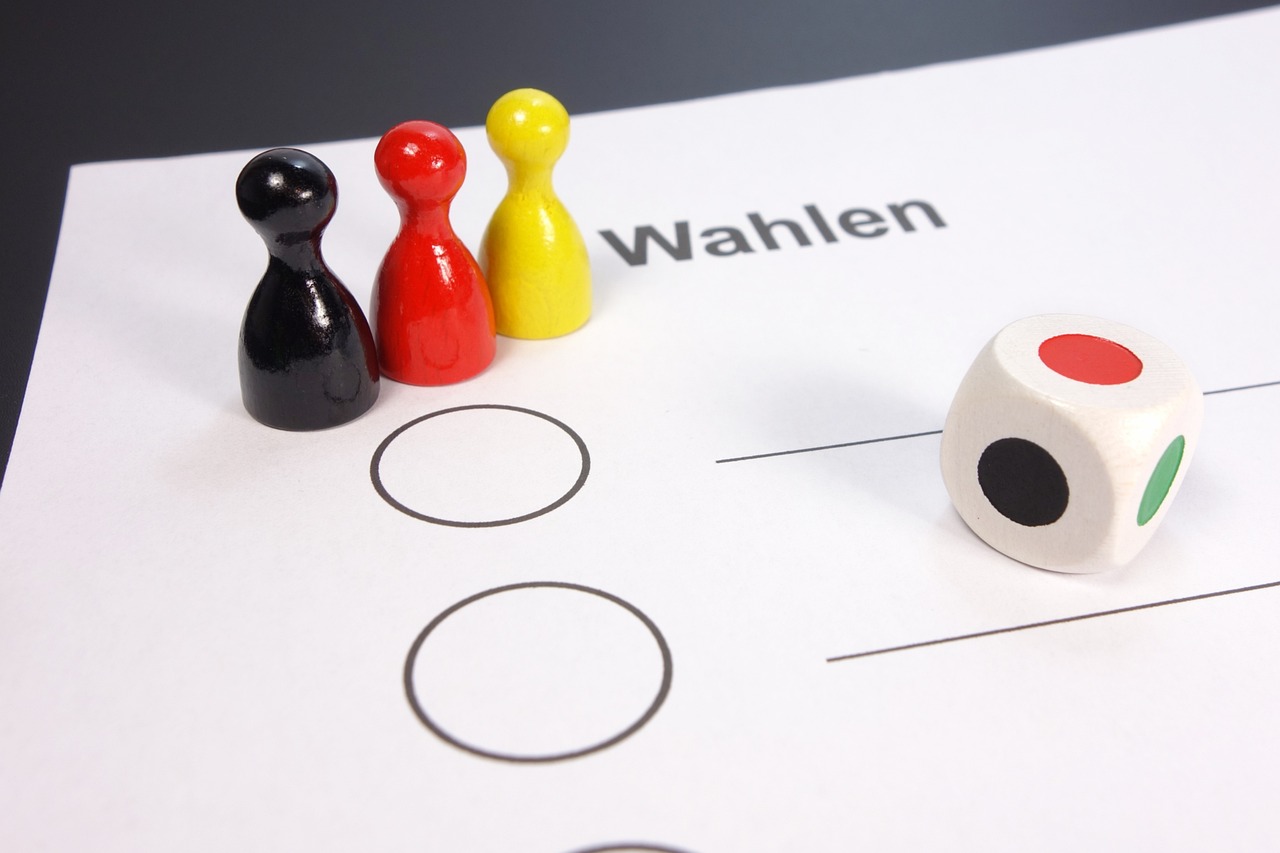
Challenges to Political Identity
Political identity is a dynamic concept that evolves in response to various external and internal factors. It is not a fixed label that one wears for life; rather, it is a living, breathing aspect of who we are as individuals and as a society. As we navigate through the complexities of modern life, several challenges emerge that can reshape, reinforce, or even fracture our political identities. These challenges arise from evolving societal norms, technological advancements, and shifting political landscapes, prompting individuals and groups to reassess their beliefs and affiliations.
One of the most significant challenges to political identity is the rapid advancement of technology, particularly through social media. Platforms like Twitter, Facebook, and Instagram have transformed the way we engage with political ideas and each other. On one hand, social media facilitates discourse and mobilizes movements, allowing voices that were once marginalized to gain visibility. On the other hand, it creates echo chambers where individuals are exposed only to viewpoints that reinforce their existing beliefs. This can lead to a narrow understanding of political issues, making it difficult to engage in constructive dialogue with those who hold differing opinions.
Moreover, the phenomenon of increasing political polarization cannot be overlooked. In many regions around the globe, political affiliations have become more pronounced, leading to a fragmented identity landscape. Individuals often find themselves in a tug-of-war between loyalty to their political tribe and the desire for open, honest discussions. This polarization can create an environment where compromise is viewed as weakness, and dissenting opinions are met with hostility. As a result, navigating political discourse becomes not just challenging but fraught with emotional and social risks.
To illustrate the impact of these challenges, consider the following table that summarizes the key factors influencing political identity today:
| Challenge | Description | Impact on Political Identity |
|---|---|---|
| Technological Advancements | Rise of social media platforms | Creates echo chambers, limits exposure to diverse viewpoints |
| Political Polarization | Increasing division among political groups | Fragmented identities, reduced willingness to engage in dialogue |
| Evolving Societal Norms | Changing views on issues like race, gender, and class | Encourages reassessment of beliefs and affiliations |
In addition to technology and polarization, evolving societal norms also play a crucial role in shaping political identity. As societal values shift—whether it’s a growing emphasis on social justice, environmental concerns, or economic inequality—individuals and groups may find themselves reassessing their political affiliations. For instance, a person who once identified with a particular political party may feel alienated if that party takes a stance that contradicts their evolving values. This fluidity can be both liberating and disorienting, as it forces individuals to confront the complexities of their beliefs.
Ultimately, the challenges to political identity are multifaceted and interconnected. They compel us to reflect on who we are and how we relate to the world around us. As we grapple with these challenges, it is essential to remain open-minded and willing to engage with differing perspectives. After all, our political identities are not just about us; they are about how we connect with others in our communities and beyond.
- What is political identity?
Political identity refers to the beliefs, values, and affiliations that define an individual's or group's political stance. - How does technology impact political identity?
Technology, especially social media, shapes political identity by influencing discourse, mobilizing movements, and creating echo chambers. - What role does polarization play in political identity?
Polarization leads to fragmented identities and makes it challenging to engage in constructive political dialogue. - Can political identity change over time?
Yes, political identity is dynamic and can evolve due to societal norms, personal experiences, and external influences.

Impact of Social Media
Social media has become a powerful force in shaping political identity in the modern world. With platforms like Facebook, Twitter, and Instagram, individuals can express their political beliefs, engage in discussions, and mobilize support for various causes at unprecedented speeds. But what does this mean for our political identities? Are we becoming more informed citizens or merely trapped in echo chambers that reinforce our existing beliefs?
One of the most significant impacts of social media is its ability to facilitate discourse among diverse groups. It allows people from different backgrounds and perspectives to share their views, creating a virtual town square where ideas can clash and coalesce. However, this same platform can also lead to the formation of echo chambers, where users are primarily exposed to information that aligns with their pre-existing beliefs. This can create a skewed perception of reality, making it challenging to engage in constructive dialogue.
Moreover, the rapid spread of information on social media can mobilize movements almost instantaneously. Think of the Arab Spring or the #MeToo movement; these social phenomena gained momentum largely due to social media. Activists can rally support, organize protests, and spread awareness about critical issues with just a few clicks. However, this immediacy can also lead to misinformation and sensationalism, further complicating how individuals form their political identities.
To illustrate the dual nature of social media's impact, consider the following table:
| Positive Impacts | Negative Impacts |
|---|---|
| Facilitates diverse political discourse | Creates echo chambers |
| Mobilizes social movements | Spreads misinformation |
| Increases political engagement | Polarizes opinions |
| Encourages grassroots activism | Fosters division among groups |
As we navigate this complex landscape, it's essential to recognize how social media can both enhance and hinder our understanding of political issues. Many users find themselves grappling with conflicting information, leading to confusion about their political identity. This fragmentation can result in a lack of trust in traditional media sources and political institutions, further complicating the relationship between individuals and their political beliefs.
In conclusion, while social media has the potential to empower individuals and amplify marginalized voices, it also presents challenges that can distort political identity. As we continue to engage with these platforms, we must remain vigilant, questioning the information we consume and striving for a more nuanced understanding of the political landscape. After all, the way we interact with social media shapes not just our individual identities but also the collective narrative of our society.
- How does social media influence political engagement? Social media can increase political engagement by providing platforms for discussion, mobilization, and awareness-raising.
- What are echo chambers? Echo chambers are environments where individuals are only exposed to information that reinforces their existing beliefs, limiting their understanding of diverse perspectives.
- Can social media lead to misinformation? Yes, the rapid spread of information on social media can facilitate the dissemination of misinformation, making it difficult for users to discern fact from fiction.
- How can individuals navigate social media effectively? Individuals can navigate social media effectively by critically evaluating sources, seeking diverse viewpoints, and engaging in constructive conversations.

Polarization and Fragmentation
In today's political landscape, polarization and fragmentation are more than just buzzwords; they are the defining characteristics of how we engage with politics and each other. Imagine a once-unified community that has now split into factions, each firmly entrenched in their beliefs, making it increasingly challenging to find common ground. This phenomenon is not merely a byproduct of differing opinions but a complex interplay of social, cultural, and technological factors.
At the heart of polarization is the tendency for individuals to align themselves with groups that echo their values and beliefs. This creates an environment where dissenting opinions are not just disagreed with but are often met with hostility. Social media plays a pivotal role in this dynamic, acting as both a catalyst and an amplifier. Platforms like Twitter and Facebook allow users to curate their feeds, exposing them primarily to content that reinforces their worldview. As a result, people can find themselves in echo chambers, where alternative perspectives are not just absent but actively dismissed.
Moreover, the fragmentation of political identity complicates our ability to engage in meaningful dialogue. When political discourse becomes a battleground of competing ideologies, the focus shifts from collaboration to confrontation. This shift can lead to a number of consequences:
- Increased Hostility: Conversations that should be constructive often devolve into arguments, further entrenching individuals in their respective camps.
- Loss of Nuance: Complex issues are reduced to binary choices, ignoring the rich tapestry of opinions that exist in between.
- Social Isolation: Individuals may feel alienated from friends or family who do not share their views, leading to a breakdown in personal relationships.
To illustrate the extent of polarization, consider the following table that highlights recent trends in political alignment across various demographics:
| Demographic Group | Percentage Identifying as Liberal | Percentage Identifying as Conservative |
|---|---|---|
| Young Adults (18-29) | 60% | 30% |
| Middle-Aged Adults (30-49) | 45% | 50% |
| Older Adults (50+) | 30% | 65% |
This data underscores the growing divide between age groups and their political affiliations. As younger generations lean more towards liberal ideologies, older generations often cling to conservative values, resulting in a fragmented political landscape that complicates governance and social cohesion.
Ultimately, the challenge of polarization and fragmentation lies in the need for *bridging the gap*. It requires a conscious effort to engage with differing viewpoints and to foster environments where dialogue can flourish rather than wither. It’s about recognizing that while our identities may be shaped by our beliefs, our humanity is defined by our ability to listen, empathize, and connect with one another, regardless of our political affiliations.
- What is political polarization?
Political polarization refers to the growing ideological distance between political parties and their supporters, leading to increased partisanship and conflict. - How does social media contribute to polarization?
Social media creates echo chambers where users are primarily exposed to viewpoints that align with their own, reinforcing their beliefs and isolating them from differing opinions. - Can polarization ever be beneficial?
While polarization can lead to a lack of dialogue, it can also energize political movements and increase civic engagement among like-minded individuals. - What can be done to combat political fragmentation?
Encouraging open dialogue, promoting media literacy, and fostering inclusive communities can help bridge divides and reduce fragmentation.
Frequently Asked Questions
- What is political identity?
Political identity refers to the beliefs, values, and affiliations that define an individual or group's stance within the political landscape. It shapes how people perceive political issues and influences their actions in civic life.
- How do philosophical frameworks influence political identity?
Philosophical frameworks provide the foundational ideas that shape political ideologies. For example, liberalism emphasizes individual rights and personal liberty, while Marxism critiques capitalism and advocates for class consciousness, both of which significantly impact political identities.
- Who are some key philosophers that have influenced political thought?
Prominent philosophers like John Locke, Karl Marx, and Hannah Arendt have made substantial contributions to political thought. Locke's theories underpin liberalism, Marx's critiques challenge traditional identities, and Arendt's ideas explore power dynamics and social justice.
- What role does culture play in shaping political identity?
Cultural factors such as ethnicity, religion, and language are crucial in shaping political identity. They influence how individuals connect with political ideologies and engage in civic life, often leading to unique perspectives within political movements.
- What is identity politics?
Identity politics focuses on the interests and perspectives of marginalized groups, often raising questions about representation and power dynamics. It can foster both division and unity, depending on how these identities are navigated within political discourse.
- How does globalization affect political identity?
Globalization challenges traditional notions of political identity by creating hybrid identities that blend local and global influences. This reshapes political allegiances and community ties, leading to a more interconnected political landscape.
- What challenges does political identity face today?
Political identity is dynamic and faces challenges from evolving societal norms, technological advancements, and shifting political landscapes. These factors prompt individuals and groups to reassess their beliefs and affiliations regularly.
- How does social media impact political identity?
Social media platforms play a significant role in shaping political identity by facilitating discourse and mobilizing movements. However, they can also create echo chambers, altering how individuals engage with political ideas and communities.
- What is the impact of political polarization on identity?
Increasing political polarization leads to fragmented identities, making it challenging for individuals to navigate political discourse. This environment fosters division rather than constructive dialogue, complicating the understanding of differing political perspectives.


